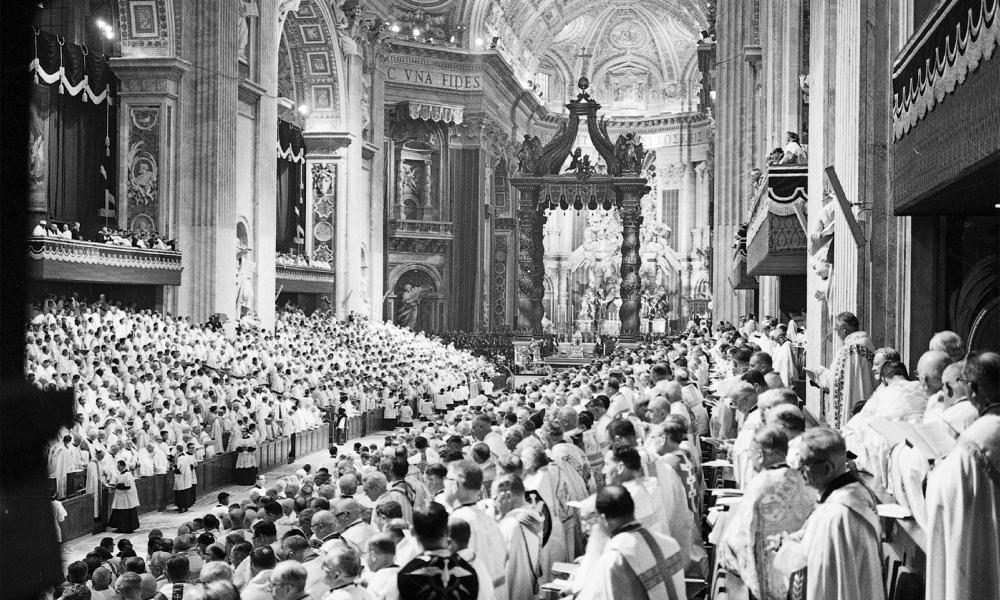
Are you saved?
Are you saved?” How many times have you been asked this question? And how many times have we thought this very same question about others who do not share our Christian faith? Fifty years ago, the bishops of the world gathered in Rome for the Second Vatican Council and dealt with this second matter in their decree, Nostra Aetate, on the relation of the Catholic Church to non-Christian religions. This decree started from the line in Lumen Gentium, “Those who have not yet received the Gospel are related in various ways to the People of God.” (LG,16)
We begin with the truth that all come from God and all are being called back to communion with God. Each religion seeks to answer the ultimate questions about humanity’s origin, purpose and end: “What is the meaning, the aim of our life? What is moral good, what is sin? Whence suffering and what purpose does it serve? Which is the road to true happiness?” (NA, 1)
Each non-Christian religion tries to address the yearnings of the human heart “by proposing ways comprising teachings, rules of life, and sacred rites.” (NA, 2) Whatever is true and holy in these matters, the Catholic Church reveres, because whatever is true is a reflection of Jesus, who is the way, the truth, and the life. (Jn 14:6) Thus, the bishops urged all of us to engage in dialogue, in prudence and love, with followers of other religions.
The bishops especially cited our relationship with Islam, recognizing the many truths and values held by Muslims. They concluded: “Since in the course of centuries not a few quarrels and hostilities have arisen between Christians and Muslims, this sacred synod urges all to forget the past and to work sincerely for mutual understanding and to preserve as well as to promote together for the benefit of all mankind social justice and moral welfare, as well as peace and freedom.” (NA 3)
Of course, the bishops recognized our special and particular relationship with Judaism where Christianity finds its roots and foundations. Even though most of the Jewish people did not accept Jesus as the fulfillment of the Old Testament prophecies, we know that God loves them and is faithful to his promises to them. The bishops also condemned any persecution of the Jewish people or any anti-Semitism. Instead, we are to imitate Christ whose love, even to his death on the cross, is the model for our behavior.
The bishops then concluded: “We cannot truly call on God, the Father of all, if we refuse to treat in a brotherly way” all others, each of whom is created in the image of God.
There are no grounds for any discrimination between us and followers of these religions because we all share a common human dignity. (NA 5)
Now, to go back to the opening question, where does this lead us as Catholics? Another document of the Council called Ad Gentes, about the missionary work of the Church, has this to say: “Although in ways known to himself, God can lead those, who, through no fault of their own, are ignorant of the Gospel, to that faith without which it is impossible to please him, the Church still has the obligation and also the sacred right to evangelize all men.” (AD, 7) So, let us all give witness to our love of Jesus and so make him known to all, bringing the fullness of truth to their searches for the meaning of life. In this way, we are truly providing bread for the world.


